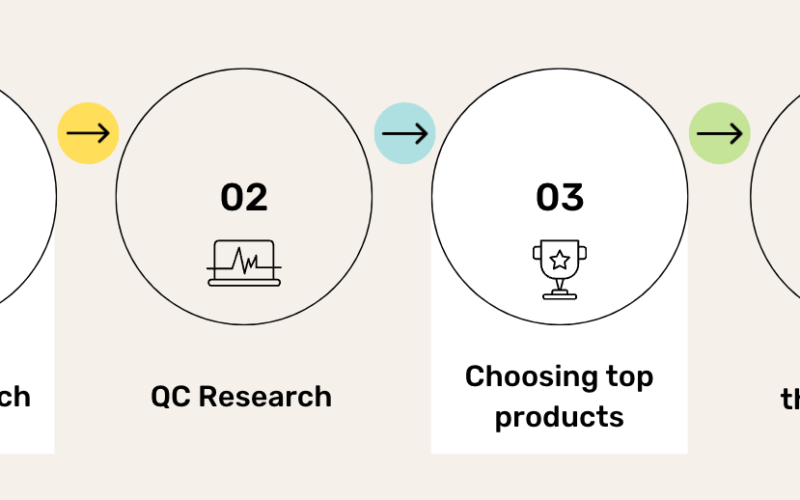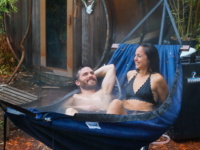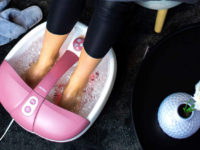Initial research
Our team searches for all popular and high-quality products. Outdated models, options with ratings below 4 out of 5, or products with many bad fresh reviews are discarded.
QC Research
On average, the top 10 products make it to this stage. For each of them, we collect and analyze a large amount of positive and negative reviews. We then extract quality criteria from people’s feedback, synchronize them across all products, and evaluate the results.
Choosing top products
The more positive evaluations of different quality criteria a product has, the higher its result and the more likely we are to review it in an article. At the end of the research, we identify the top 3–5 products and test them to ensure that we can safely recommend them for purchase. In case of successful testing of the product, we finally proceed to writing the article.
Comparing their pros and cons
Finally, we believe in the power of comparison. When people list the pros and cons of a product without comparing them, it can confuse readers because all the products seem to be good/bad at something. On the other hand, comparison helps you prioritize and choose the product that is best for what is most important to you.
These stages apply to all products, but we are not limited to that. We try to personally test all the products we review in the article for at least two weeks. Most of our team members are hot tub fans and have them in their homes, chosen after their own research.
When we analyze complex and expensive products, we look for their long-term owners and conduct in-depth interviews with them. We realize that even if we test a hot tub or pool slide on our own, it doesn’t compare to describing the experience of someone who has been using these things for years.
That’s why we find out all the information we can from owners and ask them to share any insights, which we then contribute to the article. For example, we ask them general questions such as:
- How long have you been using (a particular product)?
- What difficulties have you encountered in buying or using this product?
- How durable did the product turn out to be?
- Would you buy the same model again, knowing all its particular features?
That’s just a small part of the list. Many of the questions are individual and product-specific (which is why we carefully compile lists of questions before these interviews).
Why do we focus on research?
We believe that in-depth research is the only thing that will surely help you make the right choice. Unlike some sites that create product reviews by rewriting content from competitors, we are in constant search of our own insights.
Usually, we study a topic so deeply that we realize: it’s not enough just to describe the products here. That’s why we have many informative articles where we cover the different processes involved in buying and maintaining hot tubs and pools, from hot tub installation to how to lower pH in pools.
Why is ByRossi’s methodology better than others?
Now that you understand the methodology, you can see for yourself why our approach is one of the most comprehensive ones. However, we still have a few points to highlight about what makes our research better than any that you’ll find online:
- We conduct an unbiased review, we are not sponsored by brands, and therefore we provide our readers with a neutral and honest opinion of each hot tub
- We talk to the real long-term owners of some of the most expensive reviewed products and share with you their first-hand experience
- People from our team test products before we write reviews for them to ensure they are high-quality, safe, and meet all the standards
- We start each article from scratch, while most of the “best products” ratings just regurgitate the information from sellers’ websites or research like ours
How do affiliate websites work
Like any manufacturer or intermediary, Amazon (eBay, Wayfair, etc.) is interested in selling goods on its platform (while receiving its margin/commission). People have several options for buying a particular product, and this is where the real struggle for the consumer begins, and various market competition mechanisms are being developed.
Big players realize that it is much more difficult to achieve their goals alone, so they encourage smaller intermediaries (this is where we come in).
We become partners for Amazon and other marketplaces, promote products on the affiliate platform, and get paid a certain percentage of sales.
However, the ultimate non-commercial goal of our business is to promote the best content on the market. Quality content must have value for the consumer because we promote and review the best products among the available alternatives (note that we are not biased to promote only product A or product B, as we receive a percentage of any sales, not just sales of a particular manufacturer).




